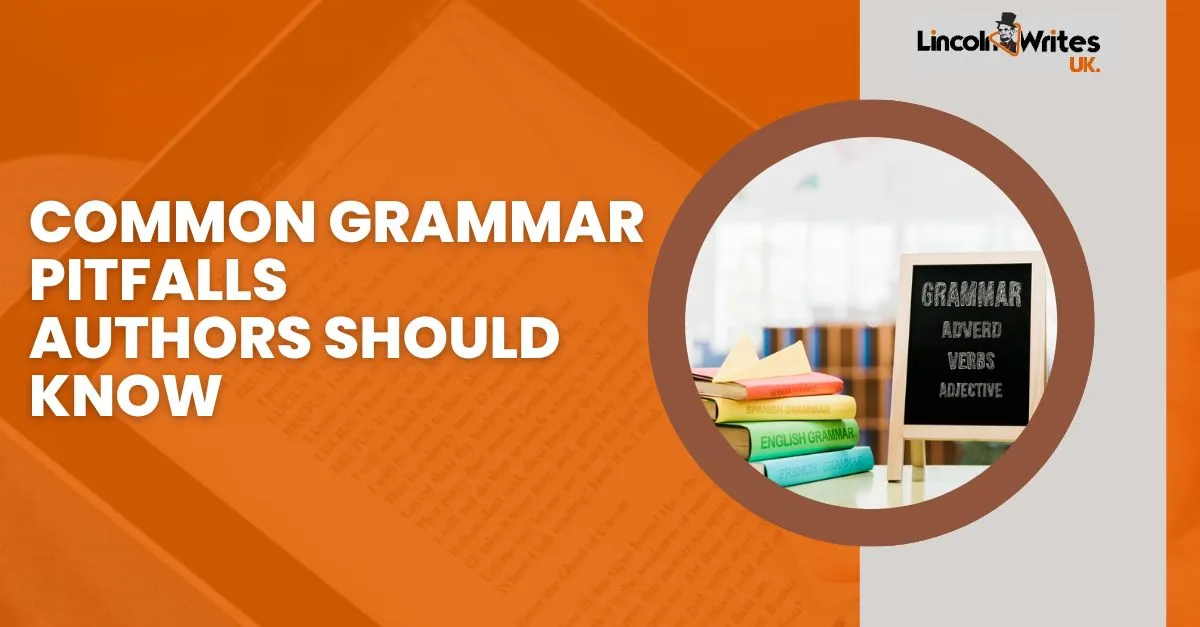We get it, you’re deep in the zone, characters are flying across the page, the plot is thickening nicely… and grammar is the last thing on your mind. But before you wrap it up and hit publish, it’s crucial that you don’t forget about those pesky slip-ups. Errors, especially grammatical can make even the best manuscript feel sloppy. Worse, they can cost you readers.
Whether you’re working on your first book or your fifth, being aware of the common grammar mistakes authors make can save you a lot of editing grief later. Even if you plan to use professional book proofreading services, knowing what to watch for will make your writing stronger and your proofreader’s job a lot easier.
In this post, we’ll break down the most frequent grammar errors we see in manuscripts, give you examples of how they show up, and offer practical tips to help you catch them early.
Why Grammar Still Matters
Let’s get this out of the way: yes, your story is more important than whether you used “who” or “whom” correctly. But…
- Grammar affects clarity
- It shapes tone and flow
- It influences how readers perceive your professionalism
- It can make or break your chances with agents and publishers
Even in collaborative writing projects like collaborative writing vs ghostwriting, a grasp of basic grammar helps maintain your voice across drafts. And when your manuscript lands on the desk of a reviewer, or the submissions team at the top ebook publishers in UK, you want them focused on your message, not your misplaced commas.
1. Subject-Verb Agreement Errors
This is a classic mistake, and it often crops up when a sentence has a complex subject or is reworded during editing.
Incorrect: The list of topics is overwhelming.
Correct: The list of topics is overwhelming.
Tip: Identify the true subject of the sentence (in this case, “list”) and make sure the verb matches it, not the nearest noun.
2. Misusing Homophones
Your / you’re. Their / there / they’re. Its / it’s.
Homophones are tricky because they sound right even when they’re wrong. And yes, even seasoned authors fall victim to them.
Incorrect: The dog wagged its tail.
Correct: The dog wagged its tail.
Use tools, yes, but remember that human proofreading is superior to AI . Automated checkers can’t always pick up on nuance.
3. Run-On Sentences and Comma Splices
When you string together multiple independent clauses without proper punctuation, you end up with a run-on or a comma splice.
Incorrect (comma splice): She loved to write, but she hated proofreading.
Correct: She loved to write, but she hated proofreading.
Also correct: She loved to write. She hated proofreading.
Tip: If both sides of the sentence could stand alone, they need to be joined by a conjunction or separated with a full stop.
This kind of error is a red flag during proofreading of ebooks compared to print because it affects readability, especially on digital screens.
4. Misplaced Modifiers
Modifiers should be placed next to the word they’re describing. Otherwise, you get unintentional comedy or just confusing prose.
Incorrect: She almost wrote 10 books in a year.
Correct: She wrote almost 10 books in a year.
See the difference? In the first example, it sounds like she almost wrote (but didn’t). In the second, she completed the writing, just not quite ten books.
5. Dangling Participles
This is another one that often slips through the cracks.
Incorrect: Running down the street, the backpack bounced on her shoulders.
Correct: Running down the street, she felt the backpack bounce on her shoulders.
Who was running? The backpack?
In genres like technical ghostwriting, where clarity is critical, this can cause major misunderstandings.
6. Inconsistent Tense
Switching tenses mid-paragraph (or mid-sentence!) is more common than you’d think, especially in memoirs or ghostwritten series planning projects with multiple timelines.
Incorrect: He walks into the room and picks up the letter.
Correct: He walked into the room and picked up the letter.
Stick to one tense per scene, unless there’s a clear stylistic reason to switch.
7. Apostrophe Confusion
Possession vs contraction. Plurals vs possessives. Apostrophes are a tiny punctuation mark with huge potential for confusion.
Incorrect: The author’s book launch was successful.
Correct: The author’s book launch was successful.
Incorrect: All the books were sold.
Correct: All the books were sold.
Again, if you’re unsure, choose the right proofreader to help clean this up before publication.
8. Overuse of Adverbs
You don’t need to ban adverbs entirely, but overusing “-ly” words can make your writing feel lazy or overwritten.
Weak: She ran quickly.
Stronger: She sprinted.
This isn’t a grammar error per se, but over-reliance on adverbs is flagged often during editing, and it’s one of the most common stylistic mistakes found in submissions to the top ebook publishers in the UK.
9. Incorrect Pronoun Usage
This is especially common in dialogue-heavy or first-person narratives.
Incorrect: Sarah and I went to the bookstore.
Correct: Sarah and I went to the bookstore.
The simplest test? Remove the other name and see if the sentence still makes sense: “Me went to the bookstore” sounds like caveman-speak for a reason.
10. Lack of Parallel Structure
This is subtle, but it affects rhythm and flow.
Incorrect: She likes swimming, to hike, and reading.
Correct: She likes swimming, hiking, and reading.
Keep your sentence structure consistent for smoother reading.
Grammar in Ghostwriting: Why It Matters Even More
When working with a children’s book ghostwriter or a specialist in collaborative writing vs ghostwriting, grammar consistency isn’t just a technicality. It’s part of voice preservation.
In authenticity in ghostwriting, tone, phrasing, and flow matter just as much as punctuation. Grammar supports all of that.
Likewise, if you’re managing a high-volume publishing schedule or scaling up content via ghostwritten series planning, mistakes that slip through in Book One will likely get repeated in later instalments unless you catch them early.
How Proofreading Services Help
Let’s be honest: even the most eagle-eyed writers miss things. That’s why professional book proofreading services exist.
At Lincoln Writes UK, our proofreaders go beyond grammar:
- We flag inconsistencies across chapters and scenes
- We apply genre-specific style guides
- We format for both digital and print
- We adjust for UK English, including regional variations
- We offer post-layout proofing after you prepare the manuscript for ebook release
We also help authors:
- Avoid publishing delays
- Spot formatting issues across devices
- Polish copy before signing or evaluating the ebook publishing contract terms
- Avoid the pain of revising published books due to ebook publishing scams or poor editing
Final Note
Grammar is the unsung hero of great writing. It’s not flashy, but it’s essential. Whether you’re aiming for traditional publishing, releasing a self-published ebook, or writing as part of a technical ghostwriting team, avoiding common grammar mistakes strengthens your credibility and reader trust.
And if grammar’s not your thing? That’s okay too.
At Lincoln Writes UK, our book proofreading services are here to catch what your spellcheck missed. Let us help you fine-tune every sentence, so your book is ready for the shelf, screen, or the submissions inbox of your dream publisher.
Want a free grammar checklist or sample proofreading pass? Just say the word, we’re here to help.


